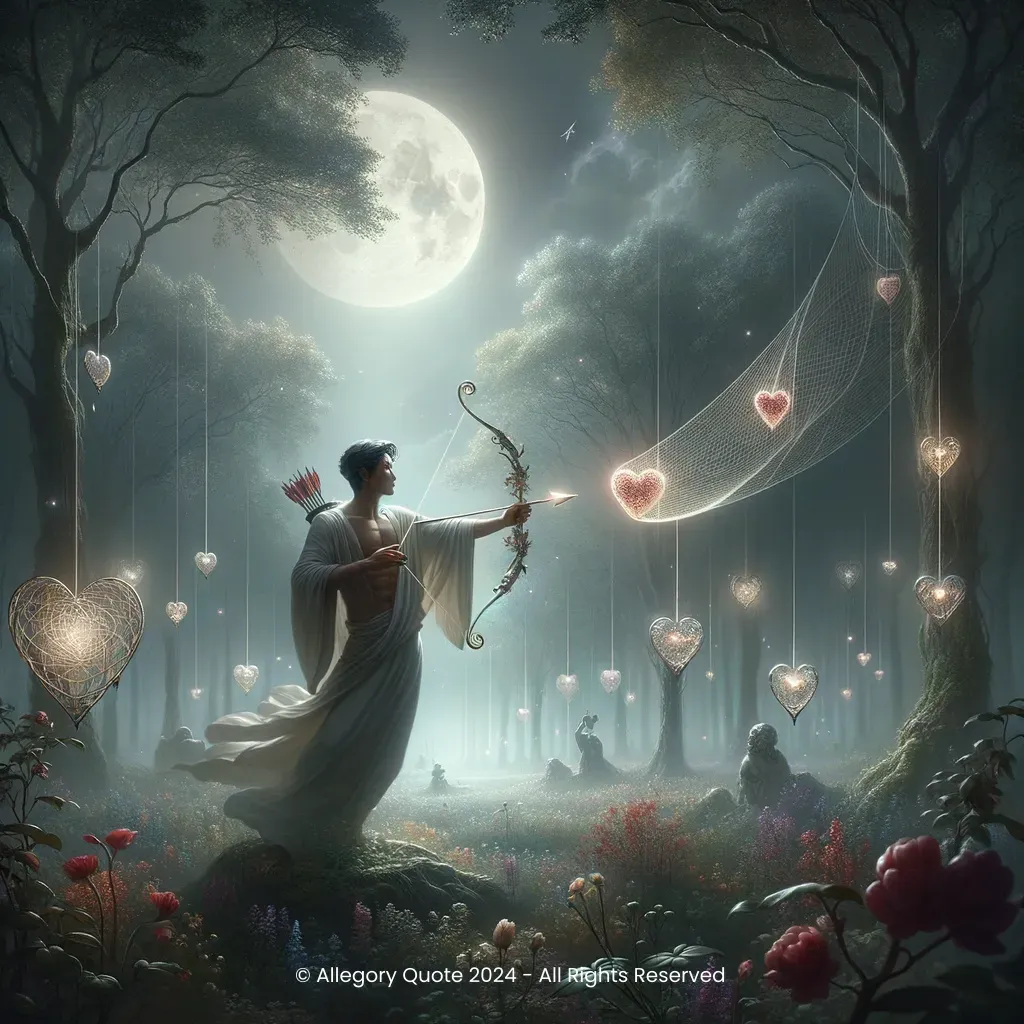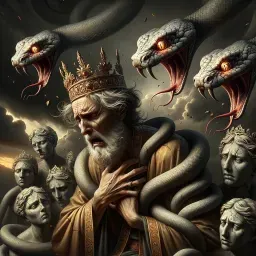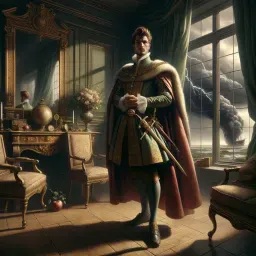Some Cupid kills with arrows, some with traps

0
0
0
0
- Meaning
- The phrase "Some Cupid kills with arrows, some with traps" explores the idea that love can come about in different ways. Cupid, the Roman god of love, traditionally uses arrows to make people fall in love. However, the phrase suggests that love can also develop through more indirect or cunning means ("traps"), acknowledging the complex and multifaceted nature of romantic attraction and relationships. While some might experience love as a sudden and direct hit, others might be ensnared gradually or in more devious ways.
- Allegory
- In the allegorical image, the serene forest clearing under the moonlit sky represents the peaceful yet mystifying realm of love. Cupid, the central figure, symbolizes the dual nature of love's impact, holding both a bow and net to indicate the different ways love can influence people—directly with arrows or subtly with traps. The interconnected hearts scattered around symbolize the varied romantic connections people experience, some instant and powerful, others gradual and intricate. The whispering trees and blooming flowers add to the enchanting atmosphere, reflecting the beauty and complexity of love in all its forms, while maintaining an overall sense of peace and harmony to convey a positive yet profound message.
- Applicability
- In personal life, this phrase can be applied to understand the diverse dynamics of romantic relationships. It reminds us that love does not conform to a single pattern or expectation. Recognizing this can help individuals appreciate their unique experiences in love, whether they were instantaneous or developed over time through more subtle interactions. It also encourages an open-minded attitude towards different love stories and the varied paths they may take.
- Impact
- This phrase has had a significant cultural impact, resonating with readers and audiences due to its insightful commentary on love's complexity. It has inspired various interpretations in literature, theater, and even modern media, contributing to ongoing discussions about the nature of love and relationships. The adaptability of Shakespeare's language also helps this phrase remain relevant across different generations.
- Historical Context
- "Much Ado About Nothing" was written in around 1598-1599, during the Renaissance period in England. This era was marked by a flourishing of arts and literature, and Shakespeare was one of the most prominent figures of this time. The exploration of themes like love, deception, and human folly was common in his works.
- Criticisms
- While the phrase is generally well-regarded, some critics might argue that it oversimplifies the complexity of human emotions by using metaphorical "arrows" and "traps." Additionally, its interpretation can vary, leading to debates about its applicability to all types of romantic experiences. Others might find the imagery of Cupid "killing" with arrows to be somewhat harsh or cynical.
- Variations
- There are variations of this phrase in different cultural contexts. Many cultures have their own proverbs and sayings that reflect the unpredictable and multifaceted nature of love. For example, Spanish poet Gustavo Adolfo Bécquer wrote, "El amor es eterno mientras dura," meaning "Love is eternal while it lasts," which captures a similar sentiment about the transient and unpredictable nature of love.
-

The empty vessel makes the loudest sound.
-

Come what come may, time and the hour runs through the roughest day.
-

How sharper than a serpent's tooth it is to have a thankless child!
-

Rich gifts wax poor when givers prove unkind.
-

Journeys end in lovers meeting.
-

I must be cruel only to be kind; thus bad begins, and worse remains behind.
-

It is a wise father that knows his own child.
-

I am constant as the northern star.
-

I will praise any man that will praise me.
-

What light through yonder window breaks?
-

O, had I but followed the arts!
No Comments